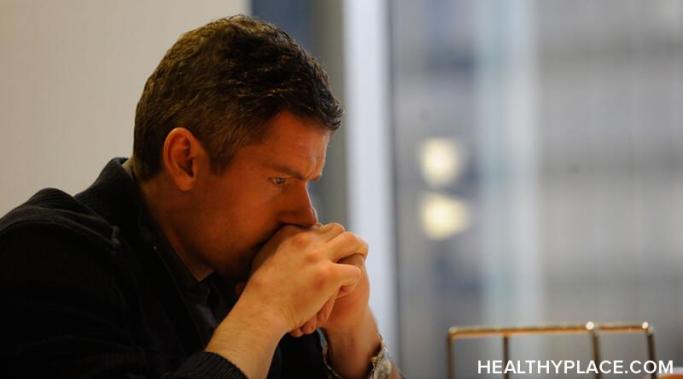Behavioral change isn't the only change needed in recovery from mental illness, but it is a key part of feeling better and living the life you want to live. But it is so incredibly hard. I recently had a frustrating, but productive, conversation with my therapist about how I need to start making behavioral changes if I want to keep improving my mental health, and the reason it was so frustrating is because I have never known how to change my behavior.
Self-Improvement - Recovering from Mental Illness
I've been in recovery from mental illness for several years now because recovery is a slow, and often lifelong, process. There are many aspects of recovery that I have a pretty good handle on at this point, like opening up in therapy and sharing my experiences with others to make all of us feel a little less alone, but one part that still throws me for a loop every time is the "random" breakdowns in mental health recovery.
One of the most important things I've learned throughout my recovery is that I'm not just recovering from depression and anxiety; I am recovering from negative core beliefs about myself. Now that I have my depression and anxiety managed through medication and cognitive behavioral therapy (CBT), it's time to start changing those negative core beliefs and healing from the damage they cause.
These first 25 years of my life have been defined by shame; but, for a long time, I thought what I was feeling was guilt, which is a very different emotion. Guilt is a signal from our minds and bodies telling us that something we've done does not line up with our internal moral code. It is focused on our actions, and it can be used to help us grow and become people who act in accordance with our standards. Shame, on the other hand, is a totally different beast.
Making therapy goals is an important part of recovering from mental illness and getting the most out of your therapy experience; but, for a long time, my goals were pretty simple. I just wanted to improve my functioning and reduce my mental illness symptoms. It took a long time and a lot of work, but I'm finally in a place where my functioning level works for my life, and my symptoms of anxiety and depression only pop up every now and again rather than all day, every day. This means now I need to set new therapy goals.
Mental resistance is something we all experience, but for a long time, I didn't realize there was actually a name for it, or a reason it happened besides me being lazy, horrible and bad. Mental resistance is that feeling where you want to do something a little differently to improve your life, but for some reason, you're just stuck.
Therapy homework differs for each therapist and each client, and many therapists don't do therapy homework at all, which begs the question: does it actually help? I've had several different therapists over the years, and only one or two of them have ever given me therapy homework. Some of my friends in therapy have lots of homework, and I always wondered if my therapists were doing something wrong by not giving me things to do outside of sessions. Now that I've had one or two therapists who do give homework, I think I understand some of the benefits and problems with therapy homework.
How might you balance social responsibility and mental health recovery? In my mental health recovery, I have had to consider what responsibilities I have to myself vs. social responsibility.
Recently, I've learned that behavior that is convenient for others is not always healthy behavior for me. I was taught at a young age that my natural reactions to things were "overdramatic" or "wrong" and so I started to hide my real reactions and feelings. I got very good at doing what I was "supposed" to do and being the way I felt I was "supposed" to be. Over time, I became much more concerned with making sure my behavior was convenient for others rather than healthy for me.
I have been taking a poetry class at a nearby university -- one I attended when I was struggling in early recovery. In returning this fall I've had to face fears and past failures.









